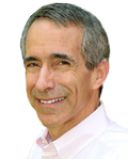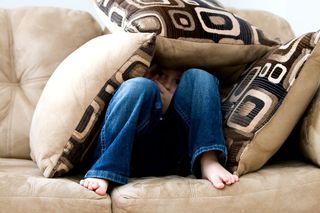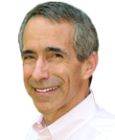
A new age of anxiety is brewing. To understand why, look around.

One of the world’s favored centers of “chill” just burned to the ground. In the peacefully pleasant California wine country, residents woke to winds whipping fire. Within minutes, their homes were reduced to ashes, and their vehicles were melted. They had no warning. In the morning light, they stood and saw that it was all gone.
In Las Vegas, 22,000 concertgoers happily danced, whooped, and sang. Many had flown thousands of miles to see favorite stars, believing bursts of automatic fire were part of the show until they saw their friends fall. The man who shot over 500 people could not see his victims. Bullets rained down like artillery. He did not bother to provide his reason for mass murder. He was a well-off local retiree, a “nice guy” who didn’t bother the neighbors.
In the Caribbean, three category 4 and 5 hurricanes formed in four weeks. Islands inhabited for centuries were completely destroyed to the extent that all inhabitants were required to evacuate. Some may never return.
Seven million people fled Florida, recognizing the existential threat of a hurricane to their homes, livelihoods, and lives. The commonwealth of Puerto Rico lost power, followed by food and water supplies. A territory with a population greater than 21 states still, six weeks later, provides less than a quarter of its population with power. A shattered economy, closed schools, and a million people without drinkable water is the legacy of Maria’s destruction.
In North Asia and North America, political leaders trade threats of nuclear annihilation. The head of the world’s most powerful nation declared he would “totally destroy” a nation of 25 million people. When his secretary of state had gone to start peace talks, he told him to not waste his time. He then challenged the same man, a former head of Exxon, to compete with him in an IQ test. He knew who would win.
No wonder benzodiazepines roll off the pharmacy shelves. What’s the average citizen to do living with all this fear? Plenty.
The Four-Fold Path
Fear and anxiety are built into our genes, our bones, and our brains—so are ways to control them. Ways that can also make us healthy.
You can define health at least four of these ways: physical, mental, social, and spiritual (meaning and purpose) well-being. You can use each one to make yourself less anxious.
Physical: Get out and walk. Many of us feel less tense outside, in sunlight, in nature. Make your way to a park. Get to know your neighborhood. If you can walk every inch. To preserve your community, it helps to know it.
Mental: Use simple writing techniques to explore solutions to the problems that gnaw at you. List some of the most prominent and your plans to solve them each day. Each day, evaluate which plans work. When they don’t, change them. Relentlessly focus on solutions, of all kinds. That’s the creative heart of the biological intelligence that keeps you alive.
Social: Get connected. Not just online, but locally. Friends, acquaintances, colleagues do a lot more than decreasing your risk of heart attack and stroke. They can listen, discuss, converse, convince. We’re social animals and we’re a lot less anxious when we know we’re not alone. We’re less anxious when we know others watch our back.
Spiritual: Do what you can that’s meaningful and purposeful to stare down the anxiety of daily life. Some things you can’t change. Some things you can change, but it’s too hard to accomplish. Those calculations can rapidly shift when you’re doing work to benefit others.
For collective action often shifts the world. The anxieties you have, whether for your kid’s futures or your mortgage, the town you live in or the trees that shelter your home, are also the anxieties of others. Sharing them helps. Acting to fix them works even better.
For action often allays anxiety, as does simple attention to the tasks of daily life. The world has been dangerous for as long as there’s been a world. Despite all our fears, we are richer, more numerous, more capable and physically healthier than our forebears. The capacity is there if the will and collective means are present.
Propagandists will tell you that your many real fears are baseless. They create baseless fears of others and their intentions. Social media makes propaganda more effective, and propaganda can more quickly shift politics than economics and ecology.
Yet ultimately, denial fails. As health care workers can tell you, in the end, reality reasserts primacy. Often the best way to deal with anxieties is to note them, watch them, and work to fix their causes. Just starting the process can help your anxiety flee.



